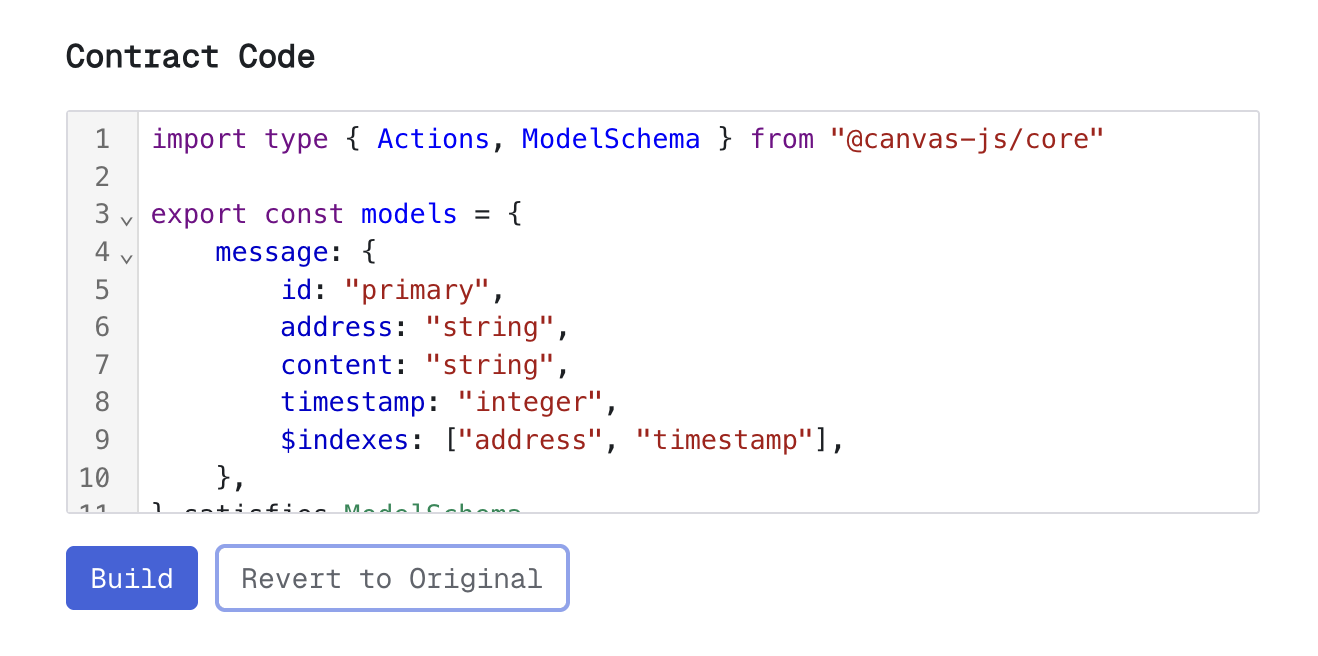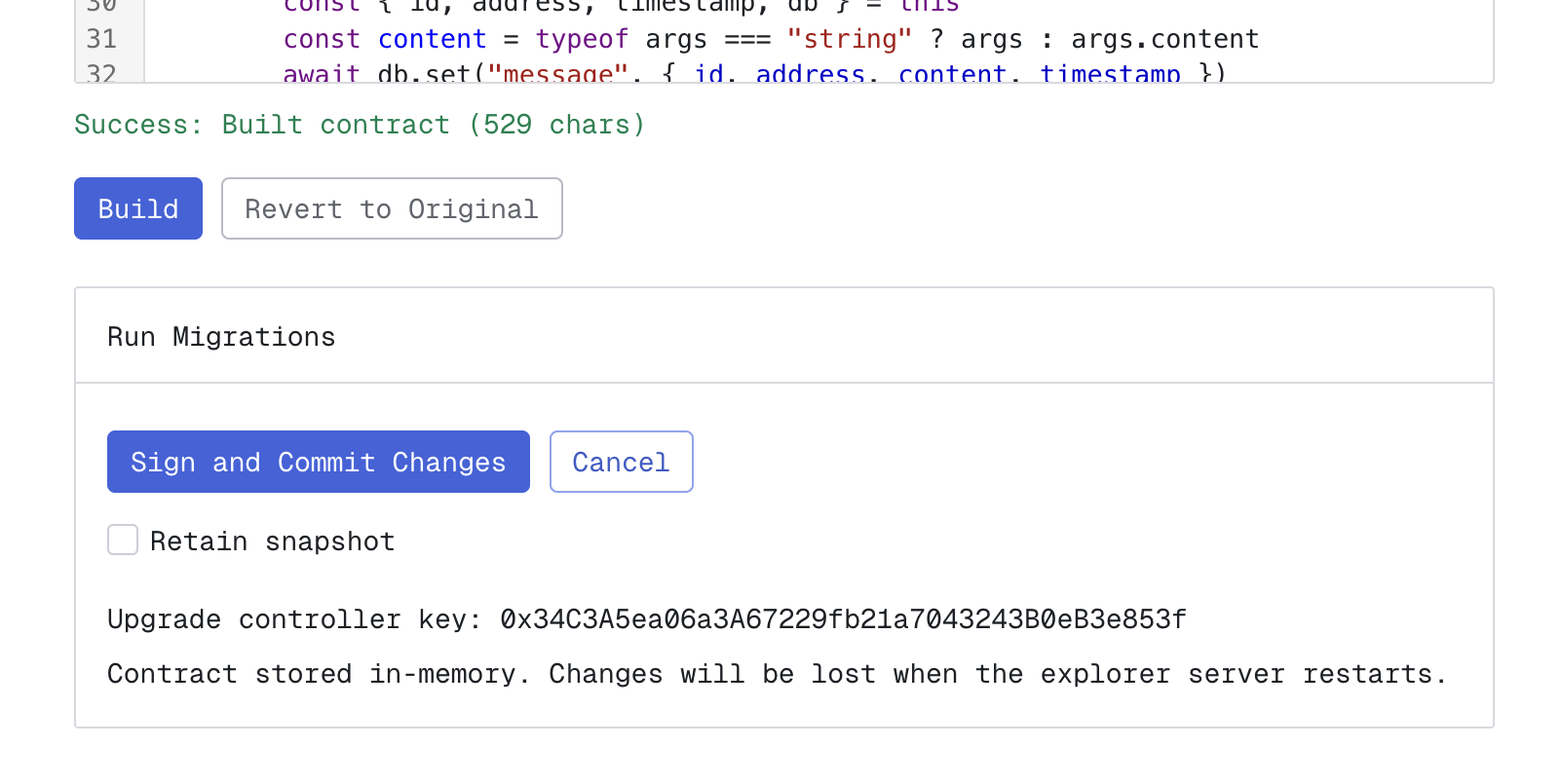Upgrading Applications
When you use canvas run --network-explorer, the node will serve a management interface, similar to the Firebase web interface, that shows you the current database and contract.
If you also add --admin followed by an admin Ethereum address[1], you can use the explorer to live-update your backend:

Edit your contract and press "Build" to compile an updated contract.
This will run an esbuild bundler that catches syntax errors, validates your new contract's models, and shows you transformations to be applied to the database.
You can now decide whether you want to proceed with the upgrade:

Soft Forks
If you apply the upgrade without retaining a snapshot, this will make your application reset and re-apply actions from the start.
This will start the application in soft-fork mode, with a topic like example.xyz.
Soft-fork applications start from an empty database, and are recommended for getting started.
Hard Forks
If you apply the upgrade while retaining a snapshot, this will make your application restart from a hard fork snapshot, which holds the initial database state of the application.
Creating a snapshot causes the server to append a #hash to the end of your topic, so an topic like chat-example.canvas.xyz would become:
chat-example.canvas.xyz#ffae63ab95cc5483Each snapshotted application runs on its own mesh. The snapshotted application will not sync with applications on the topic chat-example.canvas.xyz.
For now, we recommend that clients of hard-fork applications fetch the contract from a server when starting.